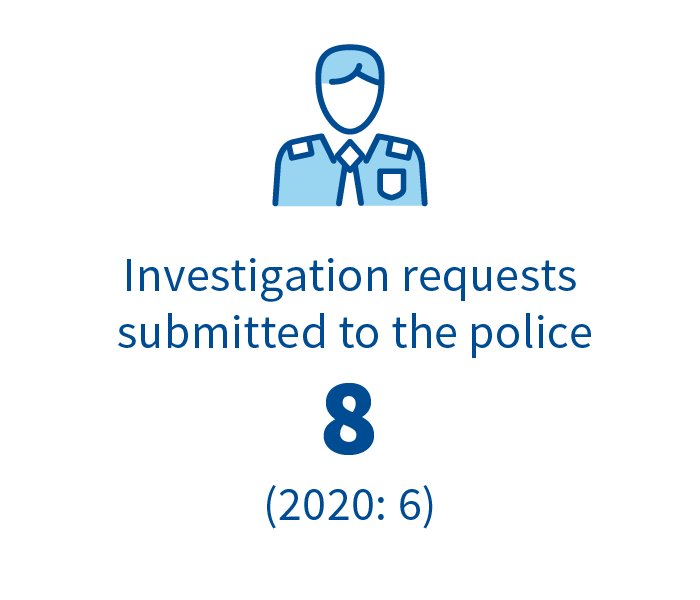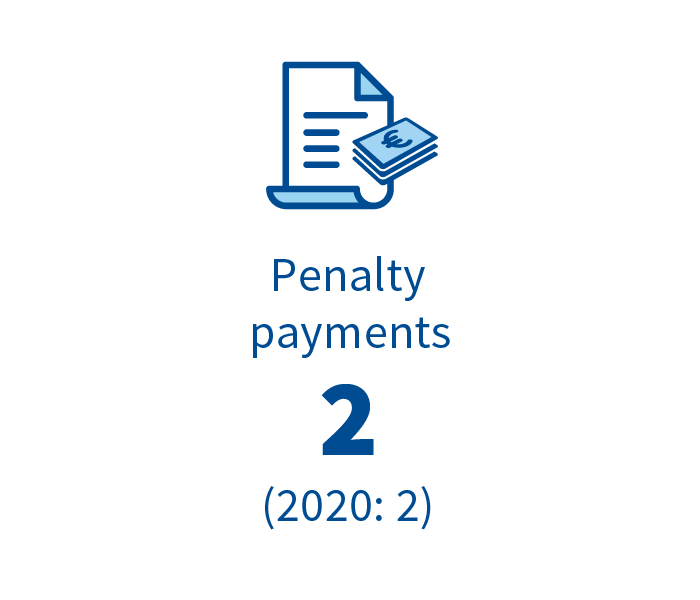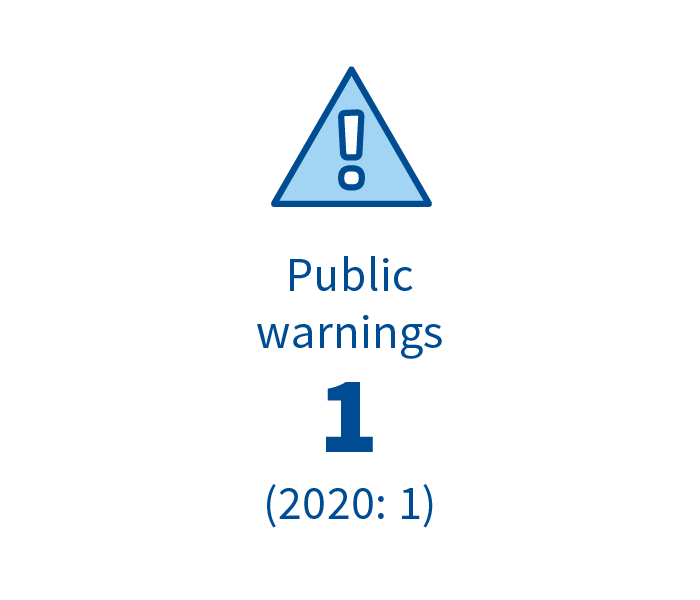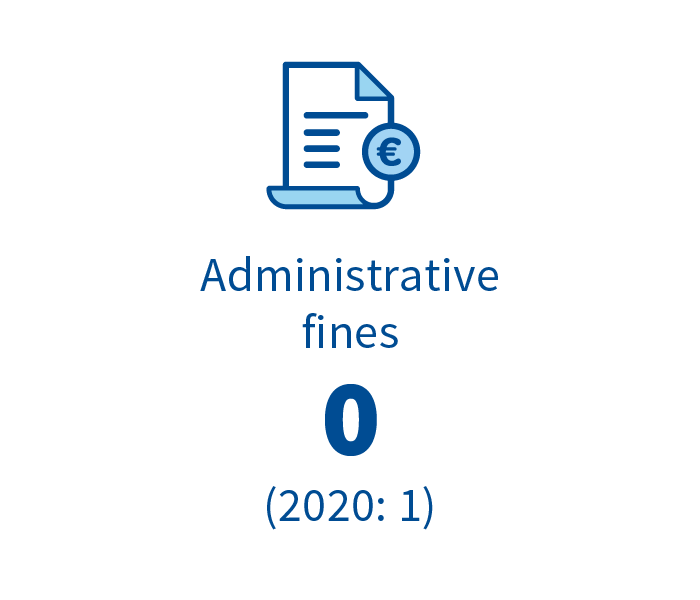
Supervision responsive to changing operating environment
Financial sector must prepare for unfavourable developments despite its good situation
The situation of the financial sector is still good after two years of the COVID-19 pandemic, but there are also many uncertainties associated with economic development. These are described in more detail in the chapter State of financial markets.
Financial sector actors must, indeed, prepare for less favourable developments than projected, such as changes in financial market pricing or an increase in banks’ credit losses. Although the financial position of the sector has remained good during the second year of the COVID-19 pandemic, the risks associated with the development of the pandemic and the economy have remained high.
The FIN-FSA has continued enhanced monitoring and analysis of supervised entities’ risk situation with regard to the development of the COVID-19 pandemic and its economic impacts. Some non-life and life insurance companies reported on their situation more frequently. The FIN-FSA’s banking supervision carried out enhanced monitoring of the development of the credit risk situation up to September. The FIN-FSA also continued to assess the effects of the COVID-19 pandemic on the financial reporting of listed companies.
The changed situation status of the operating environment was also reflected in macroprudential decisions in the year under review. At the end of June, the FIN-FSA Board decided to maintain credit institutions’ lowered structural capital requirements, i.e. at the level at which they were set in spring 2020 due to the COVID-19 pandemic. At the same time, the Board decided to tighten the loan cap on housing loans for non-first-time home buyers by five percentage points to the pre-pandemic level of 85%. The new policies for macroprudential measures were prepared for the post-pandemic period so that the new policies and decisions based on them can be implemented in the first half of 2022 in a manner appropriate to the pandemic and economic situation.
The ECB1 and the EBA published the results of bank stress tests in July. The FIN-FSA published the results of national tests at the same time. Based on the stress tests, the capital adequacy of Finnish credit institutions would withstand a significant deterioration in the operating environment. The largest Finnish credit institutions participated in the EBA and ECB stress tests, and other Finnish credit institutions in the national stress tests.
The results of an EIOPA stress test were published in December. The test confirmed that the vulnerabilities of the EU2 insurance sector primarily relate to market risks, in particular interest rate risk. The average solvency of the sector decreased and some participants even fell below the solvency capital requirement. In all cases, however, assets still exceeded the amount of technical provisions. From Finland, OP Group and Sampo Group participated in the test.
Focus of banking supervision on management of non-performing loans
Due to the pandemic situation, the FIN-FSA’s banking supervision focused on credit risks and particularly on processes related to non-performing loans. Inspections in this area revealed in the case of many banks shortcomings in compliance with rules governing the classification of non-performing loans. In its inspection letters, the FIN-FSA called for these deficiencies to be rectified.
Banks under the ECB’s supervision submitted a self-assessment and action plan on the state of their climate risk management in relation to the recommendations issued by the ECB in 2020. Based on these, the joint supervisory teams of the ECB and the FIN-FSA made their own assessments and issued bank-specific recommendations. In the future, assessment of climate risks will be included in all ECB supervisory assessments.
The EBA’s extensive regulatory reform of banks’ internal ratings-based (IRB) approach mostly entered into effect in early 2022. The reform requires banks that use the IRB approach in their capital adequacy calculations to develop their operating practices and submit applications for changes to the FIN-FSA for assessment. In its assessments of the development of IRB-model methodologies, the FIN-FSA found that banks have not been able to prepare fully for the change as required by regulations; development work will continue in the coming years.
In insurance sector supervision, attention has been paid to claims handling times, determination of entrepreneurs’ earned income, calculation of solvency of groups, and timeliness of real estate investment valuation methods
The FIN-FSA identified delays in claims handling processes and overruns of statutory deadlines in non-life insurance companies’ statutory motor liability and workers’ compensation insurance. In the review year, the FIN-FSA developed a new reporting model for the processing times of these types of insurance, and will start collecting data in accordance with the model in 2022.
The FIN-FSA studied the valuation methods and the timeliness of valuations of real estate owned by pension insurance institutions as well as non-life and life insurance companies. The survey found that valuations are generally updated with sufficient frequency. The FIN-FSA also investigated for non-life and life insurance the calculation at group level of the solvency requirement. In the opinion of the FIN-FSA, the deficiencies and errors identified on the basis of the thematic assessment do not significantly affect the solvency ratios of groups.
The FIN-FSA conducted a study on the implementation, under the Self-employed Persons' Pensions Act (YEL), of entrepreneurs’ pension security. The pension insurance institution must confirm for entrepreneurs the annual earned income corresponding in terms of quality and time to the value of work input. The FIN-FSA found that, in the confirmation of earned income, pension insurance institutions do not, however, comply with legal requirements nor their own guidelines and materials.
The number, expenditure and processing times of unemployment funds’ applications were closely monitored. At the same time, there was a prompt response to possible changes in them.
Prospectus inspections at record level, changes in operating environment and regulations impacted capital market supervision
The number of prospectus applications received by the FIN-FSA (including the first SPAC3) was a record high. In the review year, prospectus applications were of variable quality. For this reason, the FIN-FSA had to announce in the summer that it may have to use the additional time permitted by the EU Prospectus Regulation to inspect prospectuses. The quality level of prospectus applications improved at the end of the year under review.
Changes in the operating environment and regulations have also impacted capital market supervision. Fund products and related interpretations have been a particular focus of the monitoring of the Sustainable Finance project. Fund rules were assessed particularly for their compliance with the new disclosure requirements related to sustainable finance. On its website, the FIN-FSA has published its own interpretations related to sustainable finance as well as interpretations of the European Supervisory Authorities and the European Commission.
Two thematic assessments of liquidity management in the fund sector showed that there is still room for improvement in investment funds’ liquidity management. A thematic assessment of investment-based crowdfunding showed that there were particular shortcomings in describing risks and the companies’ financial situation.
AML Supervision
The FIN-FSA has continued to assess supervised entities’ anti-money laundering procedures through inspections and ongoing supervision. Inspections have focused on the banking and payment service sectors. Ongoing supervision included collaborating in periodic overall comprehensive assessments of domestic banks, the work of colleges of supervisors established for significant cross-border supervised entities, and participation in processing of new registration and authorisation applications.
Ongoing supervision was developed by expanding participation in international anti-money laundering cooperation and taking the findings of the supervisor’s assessments better into account in risk assessment and supervisory work.
In 2021, an important operational development issue was the reform of the method and organisation of AML inspections. During the year, three previously initiated AML inspections were completed and a fourth was submitted to the subject of the inspection for final comments. Three new inspections were initiated during the autumn. The AML division has an inspection capacity for around five inspections in a 12-month time window.
Another significant development target and priority in 2021 was regulatory reform. The FIN-FSA participated in the work of a Ministry of Finance legislation working group and launched its own reform of its regulations and guidelines focusing on anti-money laundering legislation.
The FIN-FSA participated in the work of a Ministry of Finance-led working group on the reform of the Money Laundering Act. A Government proposal prepared on the basis of this work was submitted in January 2022. Partly based on the reform, the FIN-FSA regulations and guidelines on prevention of money laundering and terrorist financing were approved and circulated for comments in December 2021.
Supervision of cyber and ICT risks
With the digitalisation of the financial sector, it is even more important to prepare for various information security and cyber threats. Regulations oblige financial sector actors to ensure an adequate level of information management, information security and business continuity. The FIN-FSA monitors the fulfilment of these requirements during new entities’ authorisation and registration phase, in inspection activities and in other supervisory work, for example by monitoring significant disruptions in the services provided by the supervised entities as well as in payment and information systems.
In recent years, the FIN-FSA has inspected the ICT and information security risks of online banking and payment systems as part of its monitoring of operational risks. In addition, it has surveyed more broadly in its thematic assessments the management of the ICT and information security risks of different supervised entity sectors. Preparedness for information security threats is essential in ensuring the continuity of the financial sector’s functions and services, and these inspections and thematic assessments will continue in 2022.
The FIN-FSA also analyses more broadly supervised entities’ digitalisation maturity level and risk management. In the first phase, a thematic survey was conducted on the digitalisation maturity level of different supervised entity sectors. As follow-up work, digitalisation risks and their management tools, such as the management of information security and data protection risks, will be analysed on the basis of the collected data. This work is scheduled to be completed by the end of Q1/2022.
The FIN-FSA participates in security of supply work. For example, in the pool of financial actors and public authorities, the aim is to work together to safeguard the operating conditions of organisations critical for security of supply, and thereby of society as a whole, in all circumstances. Evaluating and preparing for cyber threats is a vital part of this preparedness work within the security of supply organisation. The FIN-FSA also participated in the financial sector’s FATO 2021 joint preparedness exercise.
FIN-FSA authorised representative in two supervised entities
On 11 March 2021, the FIN-FSA appointed an authorised representative to supervise the activities of Privanet Securities Ltd. The justifications were, among other things, many cases of serious failures and violations perceived in the company’s activities, such as in the management of conflicts of interest. The FIN-FSA withdrew the authorisation of the said supervised entity on 2 July 2021.
The FIN-FSA decided to continue the authorised representative supervision imposed on Elo Mutual Pension Insurance Company on 14 December 2020. The justification for the authorised representative supervision was, among other things, the way in which the company had fulfilled the purpose of its statutory duties and activities, in particular with regard to investment activities, solvency, risk management and management responsibilities.
Strategic priorities developed through projects
The project Supervision of the digitalising financial sector conducted an analysis of the digitalisation maturity level of the financial sector and will continue its analysis work in 2022 with an analysis of risks and controls. The final results of the project will be taken into account in the planning of future activities.
The project Preparedness for disruptions updated the main outlines of crisis plans covering key supervisory sectors and supervised entities and implemented a crisis communications model. The project also reviewed contingency plans for bank payments and cash services as well as for critical services of securities market participants.
The project Integration of climate change into supervision focused on communicating and providing training to both our own personnel and stakeholders. During the year, the FIN-FSA published several supervision releases, provided internal training for its personnel and held a webinar for supervised entities in September. The webinar attracted a record level of interest and reached its target audience well. The FIN-FSA also published on its website a questions and answers section, containing interpretations of questions asked about financial sector regulations.
There have, however, been challenges in finalising EU regulations, which may delay the start of supervisory work. The FIN-FSA continues to participate in the preparation of regulatory and supervisory guidelines in the EBA, ESMA and EIOPA.
In the review year, the FIN-FSA became a member of the Network of Central Banks and Supervisors for Greening the Financial System (NGFS). The network develops practices aimed at improving conditions for sustainable financing and identifying the risks to the financial sector from climate change. Through the network, supervisors share best supervisory practices for sustainable finance.
AML Supervision focuses on ensuring that the ability of supervised entities to prevent money laundering is at the level required by law. The activities of the review year are covered in more detail in the section AML Supervision of chapter Supervision responsive to changing operating environment. A presentation on activities was made to the Parliamentary Supervisory Council during the year under review.




1 ECB = European Central Bank.
2 EU = European Union.
3 SPAC = Special Purpose Acquisition Company.